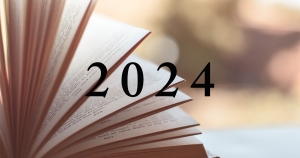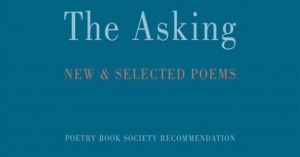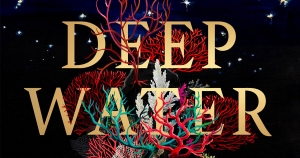Felicity Plunkett
Felicity Plunkett reviews ‘The Asking: New and Selected Poems’ by Jane Hirshfield
Jane Hirshfield writes a poem on the first day of each year. ‘Counting, New Year’s Morning, What Powers Yet Remain to Me’ is one of the new poems in The Asking, along with poems selected from nine collections published since 1982. It begins with a question the world asks (‘as it asks daily’): ‘And what can you make, can you do, to change my deep-broken, fractured?’
... (read more)Felicity Plunkett reviews ‘Deep Water: The world in the ocean’ by James Bradley
On the surface, this encyclopedic work offers a gloriously lyrical exploration of the sea. It could be part of a recent shoal of books about the more-than-human world, limning the wondrous and astonishing. In Deep Water: The world in the ocean, whales learn rhyme-like patterns to remember their songs, a ‘babel of strange, eerie sounds: skittering blips, long cries, whoops and basso moans’. A loggerhead turtle travels more than 37,000 kilometres to return to her birthplace. Sharks’ chemo-receptors prove acute enough to detect blood ‘in amounts as low as one part in a million’. Port Jackson sharks socialise with their peers, and evidence emerges that some fish species use tools.
... (read more)What the authors of these three wildly different books share is a gift for creating through language a kind of intimacy of presence, as though they were in the room with you. Emily Wilson’s much-awaited translation of The Iliad (W.W. Norton & Company) is a gorgeous, hefty hardback with substantial authorial commentary that manages to be both scholarly and engaging. The poem is translated into effortless-looking blank verse that reads like music. The Running Grave (Sphere) by Robert Galbraith (aka J.K. Rowling), the seventh novel in the Cormoran Strike crime series and one of the best so far, features Rowling’s gift for the creation of memorable characters and a cracking plot about a toxic religious cult. Charlotte Wood’s Stone Yard Devotional (Allen & Unwin, reviewed in this issue of ABR) lingers in the reader’s mind, with the haunting grammar of its title, the restrained artistry of its structure, and the elusive way that it explores modes of memory, grief, and regret.
... (read more)Felicity Plunkett reviews 'The Conversion' by Amanda Lohrey
Transformation is one thing. Conversion is another. With its Latin roots con (with or together) and vertere (to turn or bend), conversion is haunted by a sense of coercion, the imposition of one will over another. In Virginia Woolf’s Mrs Dalloway, conversion comes in the form of Clarissa Dalloway’s daughter’s evangelistic tutor, Doris Kilman, the violence of colonialism, and brutish attempts by psychologist Sir William Bradshaw to instil ‘a sense of proportion’ into his vulnerable patients. Sir William gets what he wants. He ‘shuts people up’ under the auspices of ‘the twin goddesses of conversion and proportion’. Converting, for Woolf, means ‘to override opposition’.
... (read more)Felicity Plunkett is a poet and critic. Her books are A Kinder Sea, Seastrands, Vanishing Point, and the anthology Thirty Australian Poets (as editor). Her recent essays are ‘Plath Traps’ for the Sydney Review of Books and ‘Strange Territory: Poems as “gifts to the attentive”’ for Australian Book Review. She was an ABR Fellow in 2015 and 2019.
... (read more)Felicity Plunkett reviews 'Spore or Seed' by Caitlin Maling and 'Increments of the Everyday' by Rose Lucas
Sharon Olds, author of twelve poetry collections including the Pulitzer Prize-winning Stag’s Leap, has said that when she wrote about motherhood forty years ago, she was advised by editors (‘very snooty, very put-me-down’) to try Ladies Home Journal. For Olds, now celebrated as a bold poet of the body, there is some Schadenfreude in the anecdote, like Bob Dylan’s in ‘Talkin’ New York’ as he recounts his arrival in New York, ‘blowin’ my lungs out for a dollar a day’, only to be told ‘You sound like a hillbilly / We want folksingers here.’
... (read more)A six-year-old in Canada memorises a poem written by Li Bai in the eighth century. She recites its twenty syllables perfectly in the Mandarin she studies at Saturday Chinese school, but beyond a mechanical conversion into English, makes little sense of it. Murmuring the poem’s words then holding her breath as though waiting, her mother tries to help.
... (read more)The accordion, or squeezebox, takes its name from the German Akkordeon, meaning a ‘musical chorus’ or ‘chorus of sounds’. This box-shaped aerophonic instrument makes music when keys on its sides are pressed, one side mostly melody, the other chords. Squeezing the instrument and playing with both hands, the musician dexterously produces polyphonous music.
... (read more)Again, death rolled towards / my daughter and me. Again / its grim, slow prowl and sudden / bulk. Again, human misery / veered from its lane.
... (read more)








